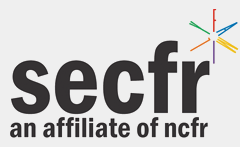Cultivating Competence: Peer-to-peer Interviewing
Proposal Focus
Education
Presentation Type
Presentation
Abstract
The power of peer-to-peer teaching and learning was explored in an interviewing assignment between upper and lower classes in Human Development and Family Life Education. The freshmen and sophomores participated in a Professional Perspectives in Family Science class, whereas the juniors and seniors were completing their practicum experiences. In both classes there is a focus on professionalism and career competence. The two groups of students were pair-matched and the upperclass Practicum students interviewed the underclass Professional Perspectives students as if it were a formal graduate school admission or an employment interview. Both participants had to prepare for the mock interview by partnering with the university career development center. After the interview the upperclass participant of the pair provided feedback to the underclass student. The metacognitive learning in this task was that upperclass students had to reflect on their own performance. By being in the interviewee role, they became aware of the parameters that could be explored in more formal real-life situations, and had an opportunity to enhance their competence for future interviews.
Keywords
Peer interviews, vocational learning, professionalism, competence
Location
Cornerstone Ballroom Side A
Start Date
12-4-2019 11:00 AM
End Date
12-4-2019 12:00 PM
Cultivating Competence: Peer-to-peer Interviewing
Cornerstone Ballroom Side A
The power of peer-to-peer teaching and learning was explored in an interviewing assignment between upper and lower classes in Human Development and Family Life Education. The freshmen and sophomores participated in a Professional Perspectives in Family Science class, whereas the juniors and seniors were completing their practicum experiences. In both classes there is a focus on professionalism and career competence. The two groups of students were pair-matched and the upperclass Practicum students interviewed the underclass Professional Perspectives students as if it were a formal graduate school admission or an employment interview. Both participants had to prepare for the mock interview by partnering with the university career development center. After the interview the upperclass participant of the pair provided feedback to the underclass student. The metacognitive learning in this task was that upperclass students had to reflect on their own performance. By being in the interviewee role, they became aware of the parameters that could be explored in more formal real-life situations, and had an opportunity to enhance their competence for future interviews.
![Southeastern Council on Family Relations Conference [2018-2020]](/assets/md5images/a0d3661d5139dc9b769a57be6f085156.png)

